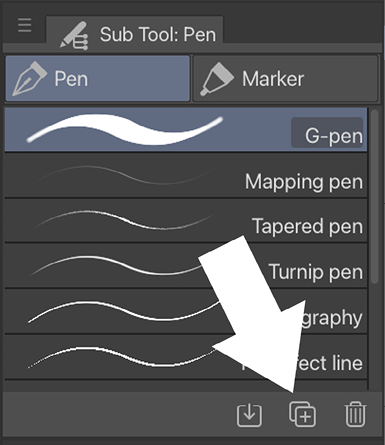Playing with brush settings
Now, we have an idea of what these brush settings do. One of the best things about digital art is that almost nothing is permanent. If you make a mark with a pen, you can almost always undo it (or erase it). With Clip Studio Paint, if you make a change to a tool that you don’t like, you can always revert the tool to its initial settings. That said, let’s learn how to make a copy of an existing brush tool, make changes to the copy, and then make marks with the copy to see what some of the brush options do when utilized.
Follow these steps to create a copy of a brush tool and change the settings:
- Select the tool to be copied. For these instructions, we are going to use the G-pen sub tool tool.
- In the Sub Tool palette, as shown in the following screenshot, click on the icon that is pointed by arrow. This is the Duplicate sub tool icon:

Figure 4.23: The Sub Tool palette
- In the pop-up Duplicate sub...























































